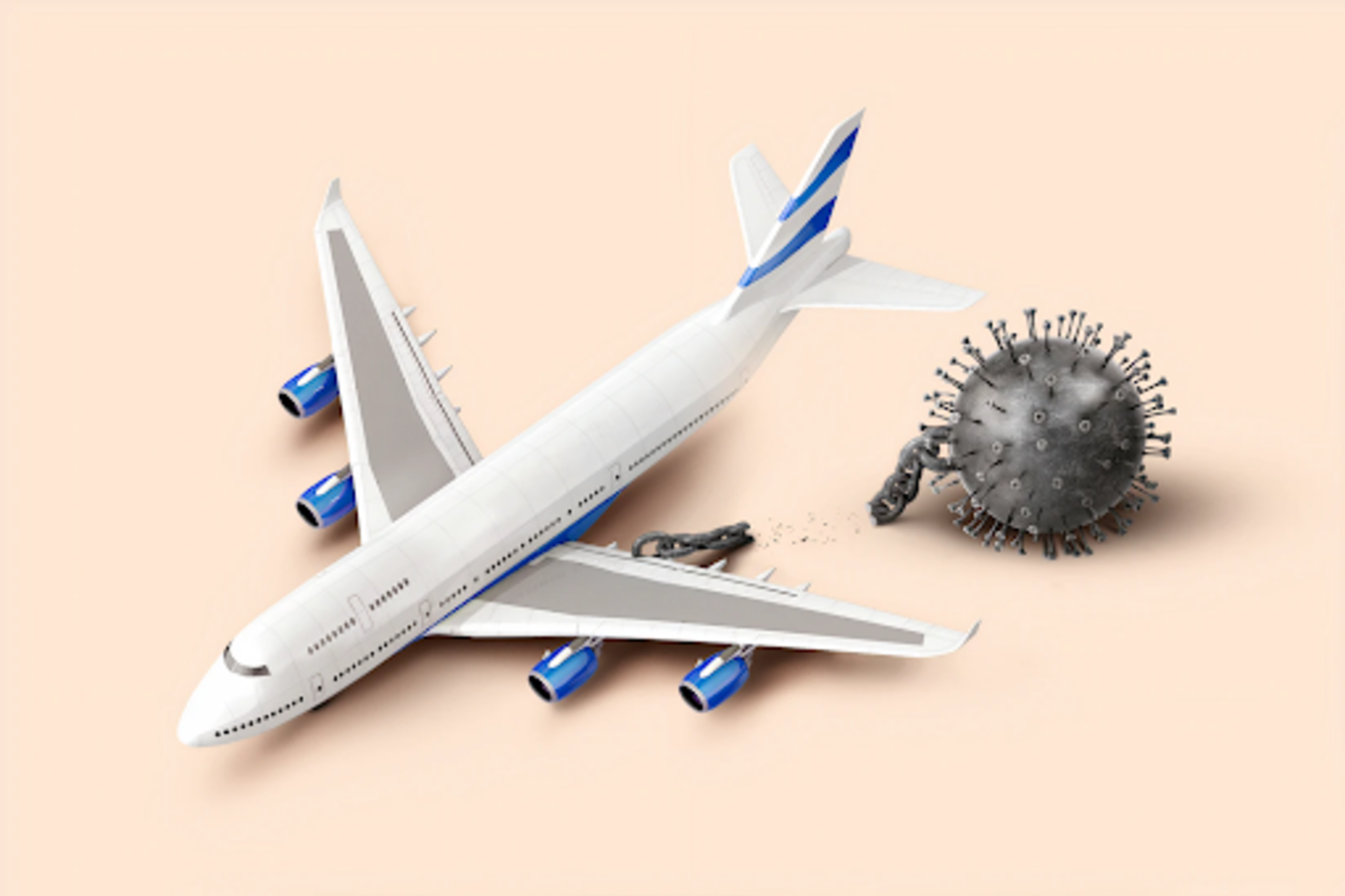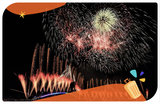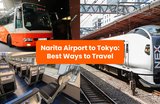We love travelling, and it's an important part of our life. We are all waiting for the moment when we don't have to worry so much about health and safety concerns anymore. But for now, due to the uncertain time, it's good to know how to be more careful and attentive while travelling than ever. This article will help you prepare for a safe air trip in the post-COVID world.
1. Evaluate the flight necessity
First of all, if you have noticed any symptoms of the infection personally or you were recently in contact with someone who has Coronavirus (COVID), we certainly don't recommend that you travel.
The same advice also applies to any other illness you might go through at the time or before the trip as your immune system is more likely to be weaker and less resistant!
Whilst travelling by plane normally stands for a balance between the time you spend in transit and the price, don't forget that you also have other options too. If you could travel by car or train at this point then that will reduce the chance of exposure to the virus due to significantly lower numbers of contacts.
If you choose to take a plane, think about taking a couple of short flights instead of one long one. It might not sound obvious, but the time you spend in the confined space affects the dose of exposure you could get in case of virus droplets presence in the air.
2. Check the travelling regulations and restrictions
When choosing the travel destination, consider the epidemiological situation in the country you wish to travel. Carefully read the requirements and restrictions of both your home country and all of your destinations. Here is the list of questions we recommend you find the answers to for before you book your flights:
- Am I allowed to enter the country I’d like to travel to?
- Do I need to be tested before the flight to enter my destination country?
- If I have to transfer through another country, can I leave the airport there?
- Do I need to quarantine upon arrival? If yes, what are the requirements for it?
- Can I move freely within the country of my final destination? (Restrictions can be different for certain regions and cities, so it worth checking everything you have on your itinerary);
- If I will notice any contamination symptoms upon arrival, can I receive any medical help in the county of my final destination?
- Finally, do I need to self-isolate in my home country when I return and what are the requirements for that?
Also, keep yourself updated daily with travel news of the destination that you are heading to given the dynamic situation to avoid any last minute surprises.
3. Check the airline travelling update
When choosing the airline, check the Coronavirus-related travelling updates on its official sources. You should be able to find there the information about plane sanitization, additional travel requirements (masks, gloves, temperature checks, etc.) as well as safety measures taken such as related to meals on board or seating arrangements.
4. Choose the right plane and seat
The air inside the plane is by half the air from the outside, that is absolutely sterile on the height of the flight, and by half the air that circulates inside the cabin. There is no final data about air safety inside the plane, but both Boeing and Airbus claim that their planes are equipped with HEPA filters that can retain viruses, so it is worth checking the plane model before booking.
These days seating close to a window is not only the most spectacular location, but also the safest option as you lower the number of people that you are in close contact with. If travelling with someone, try booking the window and aisle seats: there’s a high chance it will remain vacant and give you more air.
Finally, when already on a plane, evaluate the density of passengers and ask to change seats for an empty row if possible: these days it should be acceptable even on the low-cost flight.
5. Come prepared and protected
Face masks and sanitizers are our best friends these days and it seems that we all know about health and safety measures we should follow, but to make sure you remember everything and come prepared, we created this air traveller checklist:
- Take two face masks with you (to change every 2-3 hours), gel sanitizer and antibacterial tissues for the surfaces
- Pack the belongings that will be touched by other people/surfaces (e.g. your ID, bags, credit cards) in a washable plastic holders
- Come earlier than you normally would because queuing might be longer
- Wear the face mask throughout the whole flight and in the airport
- Minimise contact with publicly used surfaces (bathrooms, vending machines, door handles, etc.) or clean them before touching with antibacterial tissues or use the gloves
- Wash your hands on every occasion
- Do not touch your face before washing hands as virus can contact with mucous and increase a chance of contamination
- After arrival, go straight to the place you are staying in, take a shower, change and wash the clothes you were travelling in.
6. Stay alert after the trip
First of all, don't avoid governmental regulations and please follow the self-isolation rules if they're necessary. If there is an opportunity to do a test upon arrival, you might also want to do it for reassurance. Consult the doctor to find out whether you need to wait a few days before doing it.
When you arrive at your final destination, try to stay away from crowds, wear the mask in the public spaces even if it's not strictly required and wash your hands as often as you can and respect social distancing.
We believe that most of the safety requirements are temporary and will soon be remembered as unprecedented times that passed. Meanwhile, we should find a way to discover the world without putting your health and the health of others at risk. This article's recommendations cannot guarantee 100% protection, but could definitely minimise the risks. Stay safe and travel with Klook!





















